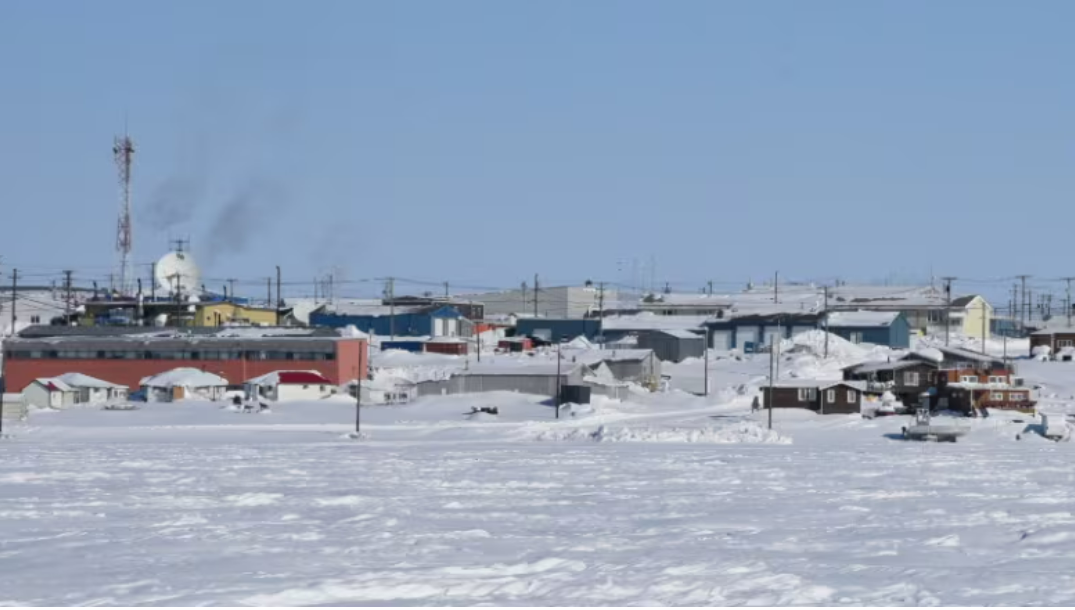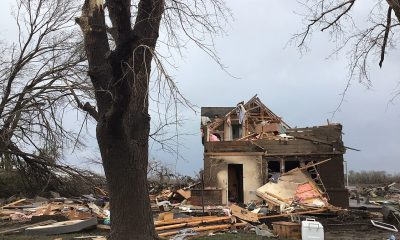Canada News
Pre-fab home factory, Indigenous post-secondary: 2024 federal budget highlights for the North

Cambridge Bay, Nunavut, is shown in April 2019 in this CBC file photo. Thanks in part to federal funding announced Tuesday, the community will be the site of a new modular home factory, with products sent to communities across the territory. (Mark Hadlari/CBC)
A new production plant for mobile homes in Cambridge Bay, Nunavut, is one of several projects that will see new federal dollars head north, according to the Liberal government’s latest budget, released Tuesday.
The budget contains a scattering of funding for housing, food security, education and wildfire fighting in the territories, and paints a broadly rosy picture of Canada’s economy as “outperforming expectations.” It also notes that amid the challenges brought by higher interest rates, the country has avoided a recession.
Housing
While the federal budget includes billions of dollars country-wide for urban, rural and Northern Indigenous housing efforts, it also includes money for one specific project: $2.15 million for Nunafab Corp. to establish a modular home production plant in Cambridge Bay, Nunavut.
The intention, according to the budget, is that homes built at the plant can be shipped to other Nunavut communities.
At the “heart” of the budget’s plan for housing is the idea that people shouldn’t have to spend more than 30 per cent of their income on housing and a belief that increasing the supply of housing will bring prices down.
The budget discusses new policy plans to use government-owned land for homes.
“Governments across Canada are sitting on surplus, underused and vacant public lands, such as empty office towers or low-rise buildings that could be built on,” it reads.
“By unlocking these lands for housing, governments can lower the costs of construction and build more homes, faster, at prices Canadians can afford.”
The budget also includes $6 billion over 10 years to build water mains, sewers and other municipal infrastructure that will need to be upgraded as new homes come online.
Food security
The budget earmarks $57 million for northern food security in 2024-25 and $34 million in each of the following two years.
There’s also $14.9 million over three years to renew and expand the Northern Isolated Community Initiatives Fund to all regions of Inuit Nunangat to support local and Indigenous food production systems, including “innovative northern food businesses.”
For schools, there is also the promised $1 billion for a national school food program. That announcement, made earlier in April, has prompted some Inuit organizations to call for cultural considerations, such as country food.
Money for Dechinta
The Dechinta Centre for Research and Learning in Yellowknife is set to receive $5.2 million in the next two years, to increase the availability of culturally appropriate post-secondary education in the North.
“We were waiting with bated breath … in the hopes that our work would be recognized,” said Kelsey Wrightson, the centre’s executive director, who was sitting at her computer Tuesday afternoon before the budget dropped, wondering if the organization would be included.
“It’s really exciting,” she said, explaining that over the past three years they’ve had a huge increase in the number of students who are applying, and an increase in the number of requests from communities to develop and deliver university-accredited programming.


The funding will support the Dechinta Centre’s operations for the next two years, which Wrightson said is enough time for them to build programming stability.
The budget also sets aside funding for research programs that examine the impacts of climate change. The feds are adding to existing funding to renew the Polar Continental Shelf Program, which supports northern research logistics, such as lodging and flights for scientists.
There’s also $3.5 million for Polar Knowledge Canada, which includes the operation of the Canadian High Arctic Research Station in Cambridge Bay.
Facing fires
Volunteer firefighters will now be able to claim double what they used to under a firefighting tax credit, which the government says could give them up to $450 more back on their taxes.
The budget also includes $9 million to support Indigenous governments in the N.W.T. who were directly affected by the 2023 wildfires. In addition, among other funding to address wildfires, the feds are contributing $145.2 million over five years, for First Nations to develop greater climate resiliency and establish structural mitigation to protect homes, buildings and other infrastructure from natural disasters.
There’s also $20.9 million over three years to support the country-wide First Nations Fire Protection Strategy which will include education and the distribution of fire alarms and extinguishers on reserves.
Mines left out
Tom Hoefer, senior adviser for the NWT & Nunavut Chamber of Mines, said he’s disappointed there isn’t any funding for a mineral exploration tax credit in the north.
“When we ask for a north-of-60 exploration tax credit, the whole intent of that is to help bolster exploration up here so that we can find those mines,” he said.
Critical mineral potential in the North has prompted mining companies in the past to call for more government support for the industry.
Hoefer said both Northern Affairs Canada and Natural Resources Canada support such a program, and it’s now up to the feds to make it happen.
“If you look at the exploration levels, you look at … [the] data on how much money is being invested [and] it’s not sufficient here in the North to do that.”
Tessa Vikander
This article is republished from RCI.





















